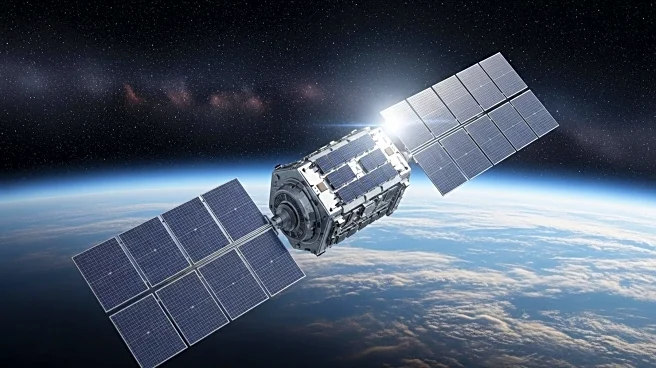What's Happening?
SpaceX is set to launch 24 additional satellites for Amazon's Project Kuiper from Florida's Cape Canaveral Space Force Station. The launch, scheduled for 9:34 p.m. EDT, marks SpaceX's third mission for Project Kuiper and the sixth overall dedicated to expanding the satellite network. Project Kuiper aims to deploy approximately 3,200 satellites in low Earth orbit to provide broadband internet services. Currently, 129 satellites have been successfully launched, with plans for over 70 more launches using various rockets, including SpaceX's Falcon 9, Arianespace's Ariane 6, Blue Origin's New Glenn, and United Launch Alliance's Atlas V and Vulcan Centaur. The satellites will be deployed at an altitude of 289 miles, with further checks and commissioning at 392 miles.
Why It's Important?
The expansion of Project Kuiper is significant for the broadband industry, as it promises to enhance internet connectivity globally, particularly in underserved regions. This development intensifies competition in the satellite internet market, where SpaceX's Starlink already operates over 8,500 satellites. The successful deployment of Kuiper satellites could bolster Amazon's position in the space-based internet sector, potentially leading to lower costs and improved services for consumers. Additionally, the collaboration between SpaceX and Amazon highlights the growing trend of partnerships in the aerospace industry, which could drive innovation and efficiency.
What's Next?
Following the launch, Amazon will conduct initial health checks on the satellites and prepare them for full commissioning at their operational altitude. The continued expansion of Project Kuiper will involve numerous additional launches, contributing to the growing presence of satellite constellations in low Earth orbit. As the network develops, Amazon may explore further partnerships and technological advancements to enhance service delivery. The increasing number of satellites also raises considerations for space traffic management and regulatory oversight.
Beyond the Headlines
The deployment of large satellite constellations like Project Kuiper and Starlink raises ethical and environmental concerns, including space debris and the impact on astronomical observations. As the industry grows, stakeholders may need to address these challenges through international cooperation and policy development. The long-term implications of widespread satellite internet access could also influence global communication patterns and economic development.








